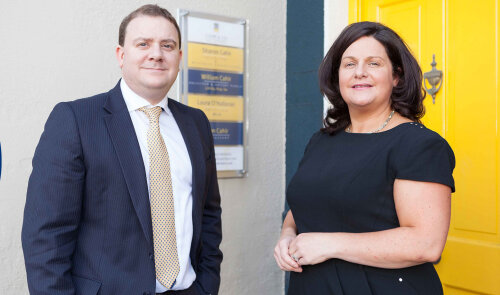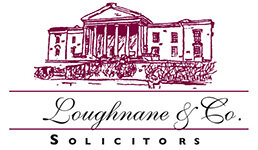Best Collaborative Law Lawyers in Ennis
Share your needs with us, get contacted by law firms.
Free. Takes 2 min.
Free Guide to Hiring a Family Lawyer
List of the best lawyers in Ennis, Ireland
About Collaborative Law in Ennis, Ireland
Collaborative Law is a voluntary, structured method for resolving family law and related matters without going to court. It brings both parties and their specially trained solicitors together to negotiate a settlement in a cooperative, problem-solving way. The process often includes other professionals - for example, financial specialists or family consultants - to help reach fair, practical agreements on issues such as division of family property, spousal support, child arrangements and pensions. In Ennis, as elsewhere in Ireland, Collaborative Law is an alternative to litigation that aims to reduce stress, preserve relationships and give the parties more control over outcomes.
Why You May Need a Lawyer
Even in a non-adversarial process like Collaborative Law, a lawyer is important to protect your legal rights, explain your options, prepare and review documents, and ensure any agreement is enforceable. Common situations where people seek legal help through Collaborative Law include:
- Separation or divorce where the parties want to settle financial and child-related issues without going to court.
- Couples who want structured help dividing property, pensions and savings while minimizing conflict.
- Parents seeking a cooperative route to agree on custody, access, guardianship, child maintenance and parenting plans.
- Parties who want to involve neutral experts - for example financial neutrals or child specialists - to reach a comprehensive settlement.
- Individuals who wish to avoid court delays, high litigation costs and the formalities of a public hearing.
Local Laws Overview
Several areas of Irish law are especially relevant to Collaborative Law in Ennis. The main points to keep in mind are:
- Family law framework - Separation, judicial separation and divorce are governed by Irish family law and the Constitution. Any Collaborative Law agreement that deals with issues arising from separation or divorce must comply with those legal rules to be effective and enforceable.
- Child law - Decisions about the care and welfare of children are made on the basis of the childs best interests. Collaborative agreements that deal with custody, access or guardianship should reflect that standard and be capable of being approved where court approval is needed.
- Property and financial settlements - Irish law looks at the needs of both parties and any dependent children, contributions to the family, and the assets available when assessing division. Full and honest financial disclosure during the Collaborative process is essential.
- Enforcement and court involvement - Collaborative agreements are private contracts. Once signed and implemented they are enforceable as contracts. If a matter later requires court enforcement or if a formal court order is wanted, parties should ensure their settlement is properly documented so it can be put before a court if necessary.
- Local court structure - Family law matters can be heard in District Court, Circuit Court or High Court, depending on the issue and complexity. In many cases parties prefer to keep matters out of court and conclude their dispute through Collaborative Law, but parties should be aware of the local judicial options and timeframes if litigation becomes necessary.
- Legal aid and supports - Legal aid eligibility in Ireland is means and merits tested. For family law and child law matters there are state supports and advice services available for those who qualify. Independent legal advice remains important even with state supports.
Frequently Asked Questions
What exactly is the Collaborative Law process?
Collaborative Law is a voluntary process where each party hires a solicitor trained in Collaborative practice. The parties and their solicitors sign a participation agreement committing to negotiate in good faith and to avoid court. They exchange information, work with neutral experts if needed, and aim to reach a negotiated settlement. If negotiations fail and a party wants to go to court, the collaborative solicitors must withdraw and new lawyers must be retained for court proceedings.
Is Collaborative Law binding?
The collaborative process itself is not a court order. It results in an agreement - normally a written contract - which becomes binding once signed by both parties. If needed, that agreement can be put before a court for approval or converted into a formal court order. Until it is signed, any proposals remain negotiatory.
How long does Collaborative Law usually take?
Timelines vary with complexity and the willingness of the parties to cooperate. Simple matters can conclude in a few meetings over weeks. More complex financial or child arrangements can take several months. Collaborative Law generally aims to be faster than contested court processes, but it depends on the case.
How much will it cost compared with going to court?
Costs depend on the hourly rates of the solicitors and any experts involved. Collaborative Law can be less expensive than litigation because it avoids lengthy court proceedings and the need for multiple court appearances. However, if extensive expert reports are required the costs can increase. Parties typically agree about how experts costs are shared before they are engaged.
Can Collaborative Law be used if there has been domestic abuse or coercive control?
Collaborative Law is not suitable in all cases where there has been abuse or a significant power imbalance. Safety of parties and children is paramount. If there is a history of domestic violence or ongoing coercive control, legal advice should be sought immediately about safer legal routes, protective orders and whether a collaborative approach is appropriate. A safety assessment should form part of the initial steps.
Who pays for the solicitors and experts?
Each party normally pays their own solicitor. Costs for neutral experts - for example financial neutrals or child specialists - are usually shared between the parties as agreed in advance. Parties should discuss fee arrangements and budgeting at the outset to reduce later disputes about costs.
What happens if one party does not disclose financial information?
Full and frank financial disclosure is a cornerstone of Collaborative Law. If a party fails to disclose assets or income, the process can break down and the other party may consider formal legal routes, including court proceedings. Any agreement reached without proper disclosure could be vulnerable to later challenge.
Can we include children in the process?
Children are rarely directly involved in meetings with solicitors. However, Collaborative Law often uses child specialists or family consultants who can speak with children in an appropriate way and advise on parenting plans or arrangements. The childs welfare is the paramount consideration in any agreement affecting them.
What if we cannot reach an agreement - do we lose our solicitors?
Under the Collaborative method the participating solicitors sign an agreement that they will withdraw if the matter goes to court. This is to encourage settlement. If the process fails, both parties will need to obtain new legal representation for any subsequent court proceedings. That rule is part of the Collaborative commitment to resolving matters without litigation.
How can I find a Collaborative lawyer in Ennis?
Look for solicitors who advertise training or experience in Collaborative Law or Collaborative Practice. You can ask local solicitors whether they handle collaborative files, ask for a short initial consultation to discuss the process and check whether they will work collaboratively. Also consider regional firms in County Clare or neighbouring cities if specialist collaborative practitioners are required.
Additional Resources
There are several organisations and public bodies that can help if you are considering Collaborative Law:
- Citizens Information - for clear, plain-language information about separation, divorce, maintenance, children and state supports.
- Courts Service - for an overview of how family law matters are handled by courts and what options exist for court-based processes.
- Civil Legal Aid - the Civil Legal Aid Board provides information on legal aid and may assist people who meet means and merits tests for family law cases.
- Tusla - the Child and Family Agency - for child welfare queries and supports.
- Law Society or local solicitor referral services - for locating solicitors practising in family and collaborative law.
- Local community and family support services in Ennis and County Clare - for practical supports, counselling and mediation services that can complement legal work.
Next Steps
If you are thinking about Collaborative Law in Ennis, consider the following practical steps:
- Get an initial legal consultation - speak with a solicitor experienced in Collaborative Law to explain your situation and the steps involved.
- Assess suitability - discuss safety, power imbalances and whether Collaborative Law is appropriate for your case.
- Ask about costs and budgeting - request a clear estimate of likely solicitor fees and any expected costs for neutral experts.
- Consider legal aid - if you have limited means, check your eligibility with the Civil Legal Aid Board or other local services.
- Prepare information - gather documents about finances, property, pensions and details about children to enable meaningful disclosure.
- Agree a process - if both parties choose Collaborative Law, sign a participation agreement that sets out the ground rules, confidentiality and how experts will be engaged.
- Keep records - maintain written notes of meetings and drafts of any agreement so you have a clear paper trail as negotiations progress.
If you need help finding a practitioner in Ennis, start by contacting local solicitor firms and asking whether they practise Collaborative Law, and by checking the public resources listed above for guidance on family law options and supports.
Lawzana helps you find the best lawyers and law firms in Ennis through a curated and pre-screened list of qualified legal professionals. Our platform offers rankings and detailed profiles of attorneys and law firms, allowing you to compare based on practice areas, including Collaborative Law, experience, and client feedback.
Each profile includes a description of the firm's areas of practice, client reviews, team members and partners, year of establishment, spoken languages, office locations, contact information, social media presence, and any published articles or resources. Most firms on our platform speak English and are experienced in both local and international legal matters.
Get a quote from top-rated law firms in Ennis, Ireland — quickly, securely, and without unnecessary hassle.
Disclaimer:
The information provided on this page is for general informational purposes only and does not constitute legal advice. While we strive to ensure the accuracy and relevance of the content, legal information may change over time, and interpretations of the law can vary. You should always consult with a qualified legal professional for advice specific to your situation.
We disclaim all liability for actions taken or not taken based on the content of this page. If you believe any information is incorrect or outdated, please contact us, and we will review and update it where appropriate.










